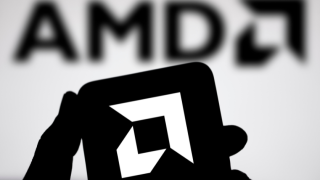|
|
Randall Stephenson, CEO, AT&T |
The deal, if completed, would give AT&T a 43% share of that market with over 129 million subscribers, enabling it to leapfrog Verizon Wireless as the country’s biggest cellco. Market watchers have speculated that Verizon could regain the initiative by buying Sprint Nextel, at present the third largest player in a market of four, although it has denied that such a move is on its agenda. AT&T’s acquisition is expected to face intense legal and anti-trust scrutiny from the US Justice Department and Federal Communications Commission, making it unlikely that it will complete before the beginning of 2012. Regulatory concerns are driven by the fear that, in a market with fewer powerful players, consumers could face higher prices and that incentives to invest in next-generation services by smaller players will diminish.
This concern has been echoed by Sprint, after the company declared its opposition to AT&T’s proposed deal and urged the US government to block the deal. Sprint has a 16% market share in the US. It was rumored by media sources that Sprint would merge with T-Mobile USA before AT&T’s announcement. Sprint argues that levels of competition, investment in the US economy and three decades of an open, modernised US communications market will be severely compromised if AT&T is allowed to complete the deal.
“Sprint urges the US government to block this anti-competitive acquisition,” says Vonya McCann, SVP, government affairs. “This transaction will harm consumers and harm competition at a time when the country can least afford it.” AT&T has been careful to stress that the acquisition, by allowing it to extend its LTE network to an additional 46.5 million citizens, is in line with the US government’s goal to connect every US citizens to fast broadband services.
“The transaction represents a major commitment to strengthen and expand critical infrastructure for our nation’s future,” said AT&T CEO Randall Stephenson. The deal is symptomatic of the growing maturity of the US mobile services sector, said Steven Hartley, an analyst at Ovum: “AT&T is unashamedly pandering to the US government concerns, emphasising customer benefits, US ownership, a unionised workforce and bridging the digital divide. But the deal is unlikely to receive complete regulatory approval without concessions – highly unlikely considering its scale.”
If the deal goes through, Deutsche Telekom’s presence outside Europe would be greatly diminished, although it would under current plans take an 8% equity stake in AT&T and have a representative on the company’s board of directors. “We started the new century with Europeans entering the US mobile market on a large scale, but these adventures seem to have got bogged down as the decade has progressed,” says John Delaney, research director with analyst firm IDC. “With Sprint’s position looking increasingly difficult, and with one of Sprint’s options for improving its position, a merger with T-Mobile USA now off the table, the US looks like it is heading towards a duopoly of national mobile operators.”




